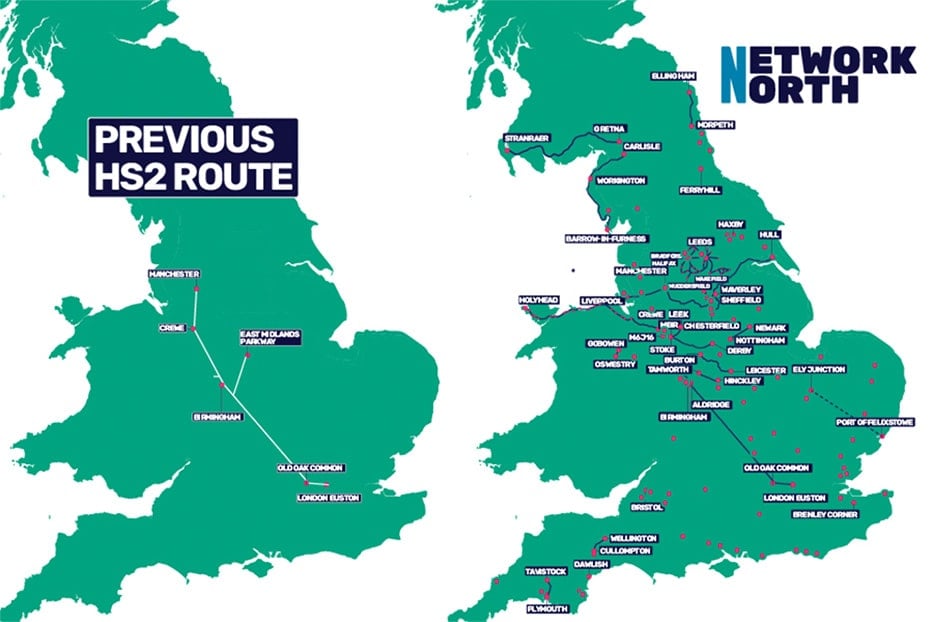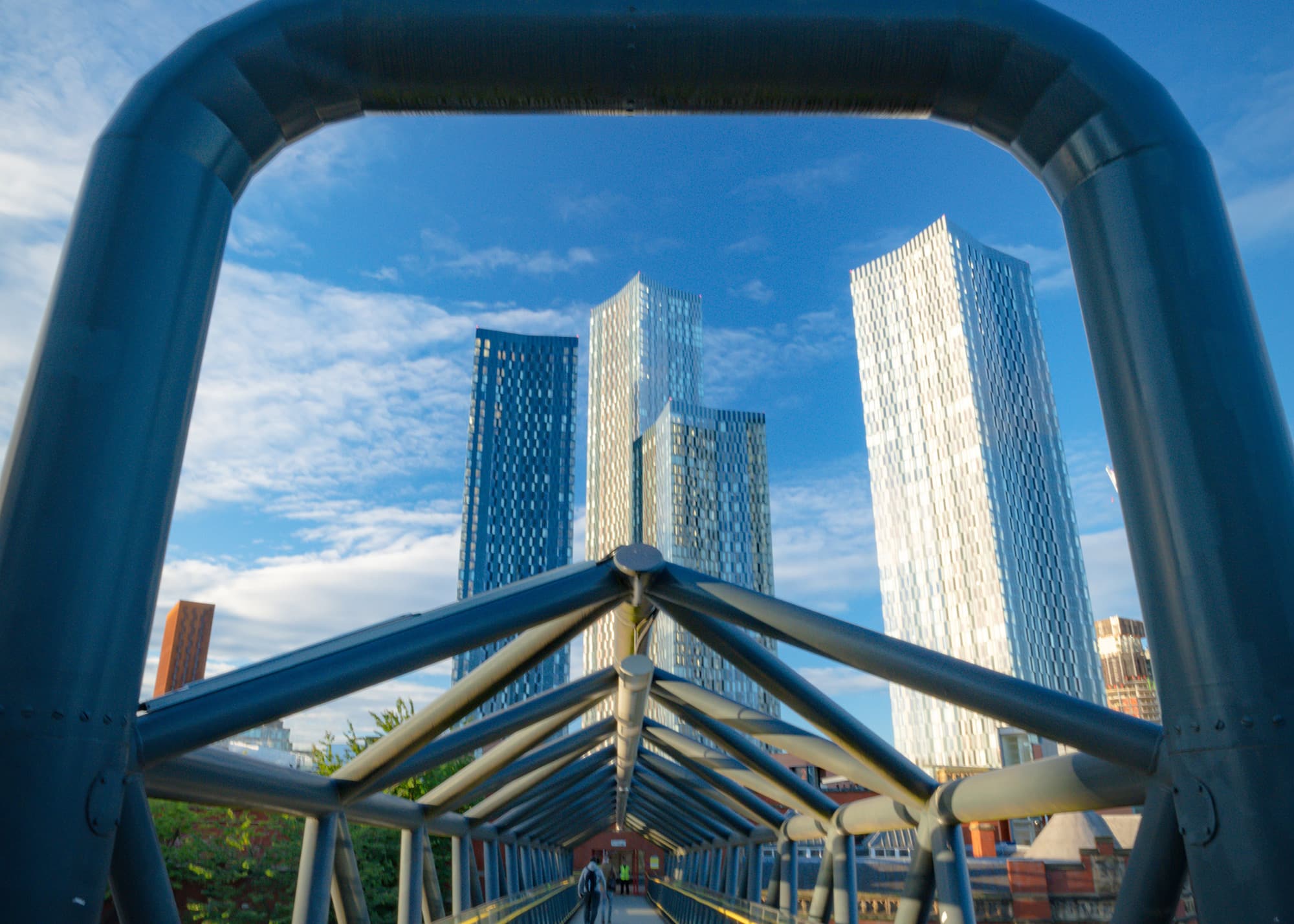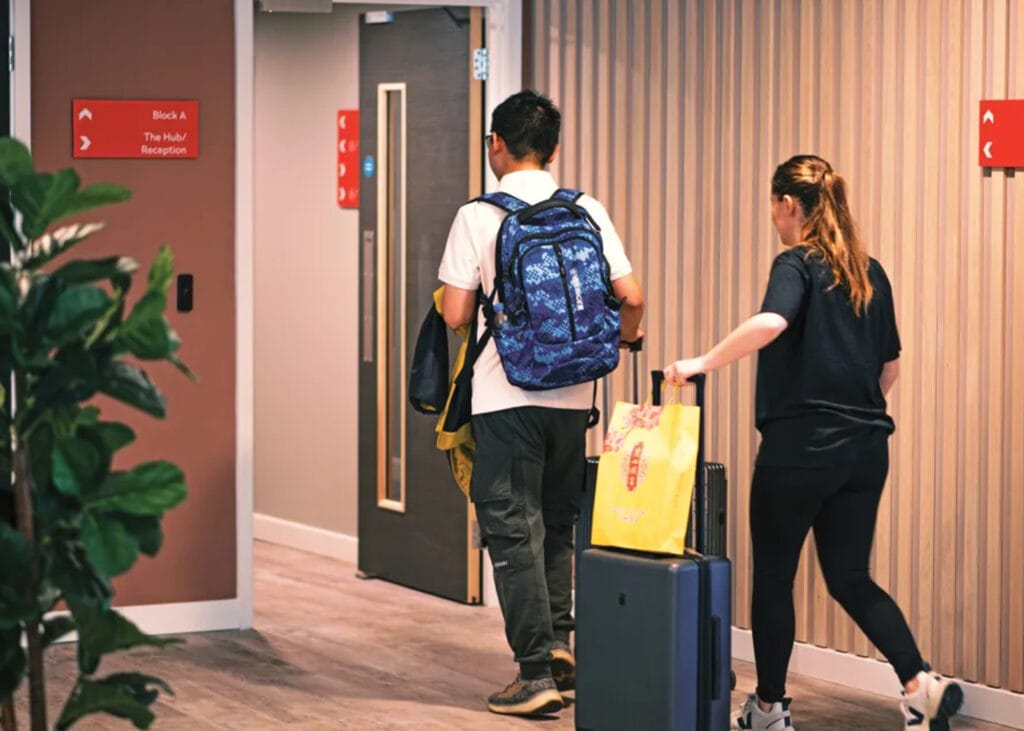Well documented in the news this week, UK Prime Minister, Rishi Sunak, has axed Phase 2 (the northern leg) of the government’s high-speed railway, HS2.
Announced in 2012, HS2 set out to connect London with some of the UK’s most important regional cities, including Birmingham, Manchester, and Leeds. Promising to cut the journey time between London and Manchester from 2 hours and 5 minutes, to just 1 hour and 11 minutes (54 minutes quicker), HS2 will now just run between London and Birmingham.

What would Phase 2 of HS2 have meant for Manchester?
While the completion of Phase 2 would have been a nice addition to Manchester’s success story, it is by no means a must-have for the Capital of the North, which has topped all UK cities for house price and rental growth in recent years.
When HS2 was announced in 2012, it was thought that improved connectivity to the capital from 2033 (the project’s expected completion date) would catapult Manchester’s global reputation, local economy and housing market as part of the government’s ‘Levelling Up agenda’ to invest in northern cities.
Just over a decade later and Manchester’s self-sustaining economy, soaring property market, and status as a global hub for business and a world traveller destination, has made proximity to the capital arguably less important than ever.
Why changes to HS2 shouldn’t impact Manchester’s property market
When HS2 was initially announced, it was thought that Phase 2 would make Manchester a commuter hotspot overnight for people with central London jobs, allowing them to rent in a more affordable city while maintaining their salaries. An appealing option for Londoners seeking bigger apartments and better amenities, this would mean just a 71-minute commute to central London.
While this sentiment remains, the home-working trend accelerated by the Covid-19 pandemic has made proximity to the workplace less important than ever, with the BBC reporting in March 2023 that 4 in 10 Londoners work from home at least some of the time. This has meant that we have already seen a ‘North-shoring trend’ of Londoners emigrating to Manchester, commuting just once or twice a week.
Beyond that, Manchester has a competitive job market of its own. With a booming local economy, 52% graduate retention rate, and influx of international investment from major blue-chip employers. Salaries are also on the rise, with a growing talent pool and an emerging luxury scene to attract and retain high earning young professionals and major companies.
The Manchester leg of HS2 was due to complete between 2029-2033, meaning its completion is very unlikely to have been a decision factor for renters moving to Manchester today (6-9 years before). Manchester’s rental market is soaring due to the rapidly expanding population and chronic shortage of rental property – a supply and demand imbalance that is not expected to level out any time soon.
‘Network North’ to replace Phase 2 of HS2
While connectivity between London and the North isn’t set to improve, the Prime Minister did announce a positive for the northern cities, pledging to “reinvest every single penny – £36bn – in hundreds of transport projects” in the place of Phase 2.
‘Network North’ is a new programme of transport improvements that Sunak says “will benefit far more people, in far more places, far quicker.” The project includes a range of piecemeal road and rail projects, improving connectivity in, around, and between the northern cities including Manchester, Leeds and Sheffield.
While the announcement has been a divisive one among the UK public, we look forward to seeing the full plans and scope of the project in time to see the full potential of Network North and its benefit to the northern cities.
If all goes ahead, this will be welcome news for many of UK’s northerners, who have demanded better transport links since before the initial announcement of HS2 in 2012.

Mass regeneration in Manchester
It takes one look at Manchester’s ever-changing skyline to see that this is a city evolving. Key regeneration projects that have transformed the city in recent years include Ancoats, New Islington, NOMA, Mayfield, and the Green Quarter, just to name a few.
Upcoming regeneration projects include ID which stands for ‘Innovation District’ – a vibrant new area which forms part of the Picadilly Masterplan and will be a hotbed of creativity and innovation in science and technology. Just a 10-minute walk from Manchester’s ‘coolest neighbourhood’ as voted by TimeOut, the Northern Quarter, ID will attract even more renters to this vibrant area of Manchester city centre.

In summary, while a shorter journey time to the capital would have been another brilliant addition to Manchester’s story, the fundamentals underpinning Manchester’s success as an investment city remain unimpacted. With improved transport links in the North and the continuation of major regeneration projects, Manchester will continue its upward trajectory as a world traveller destination and ‘the UK’s most liveable city’ (2011-2023).
One Port Street is Select Property‘s latest and most iconic development to date, in the heart of the Northern Quarter. Now 80% sold, get in touch to find out more before it’s too late.
